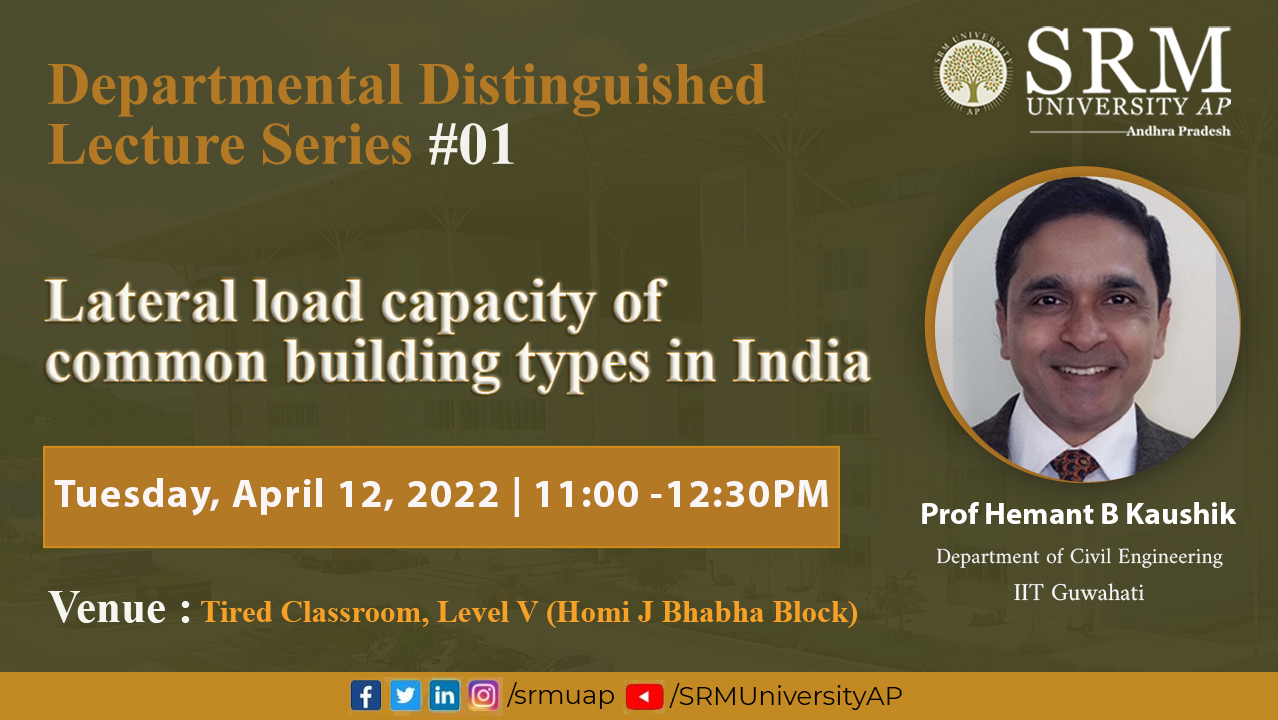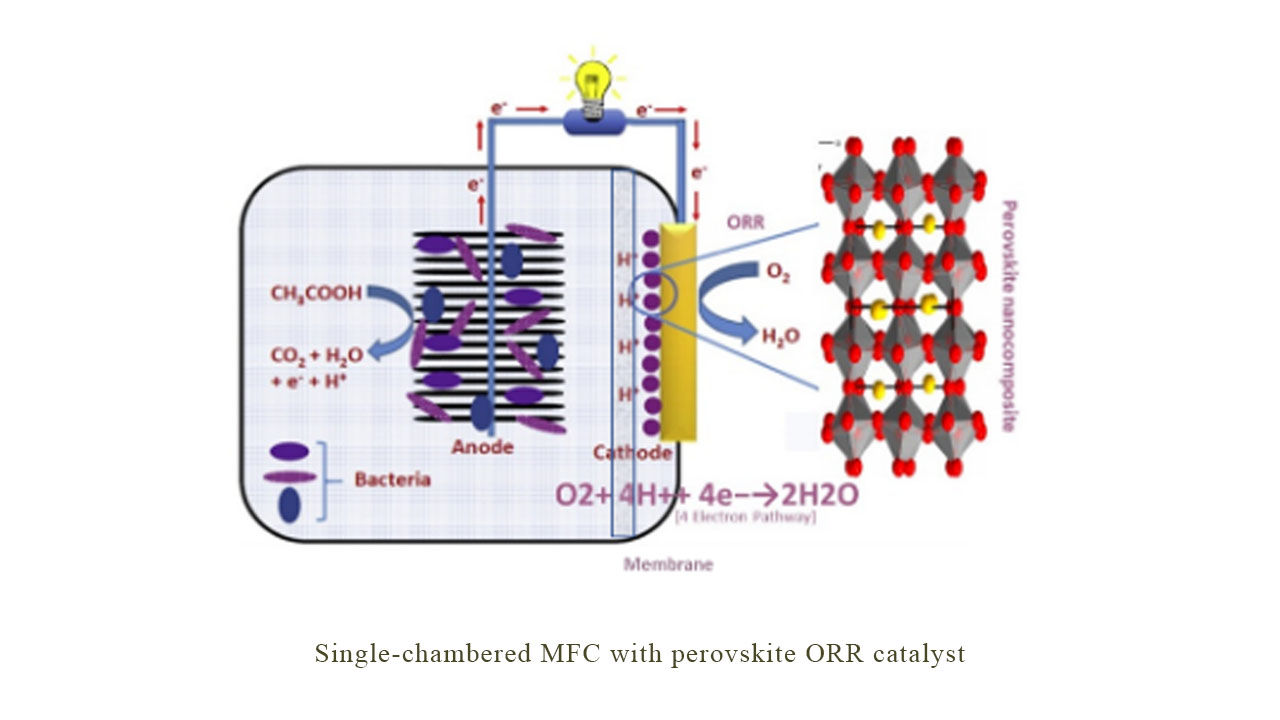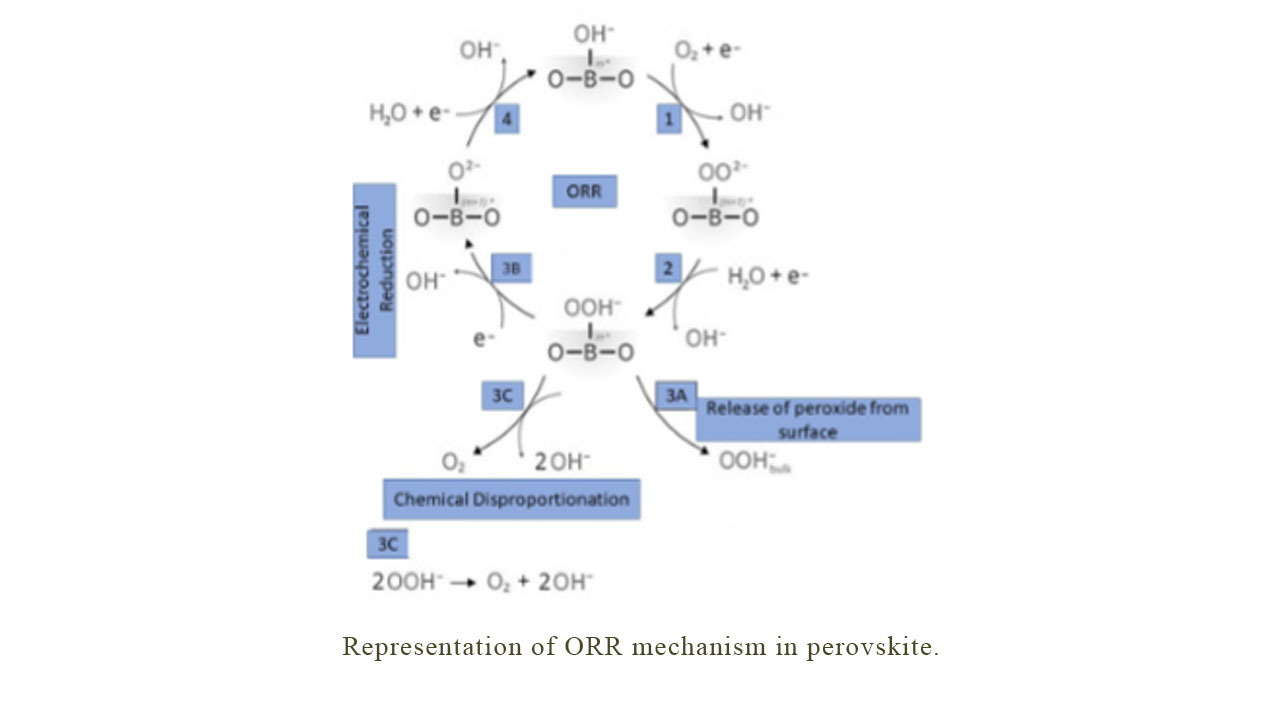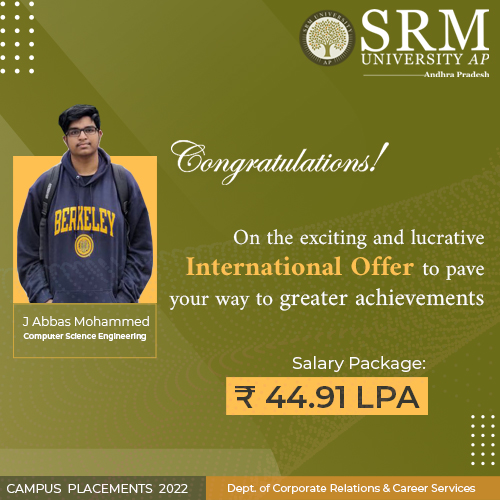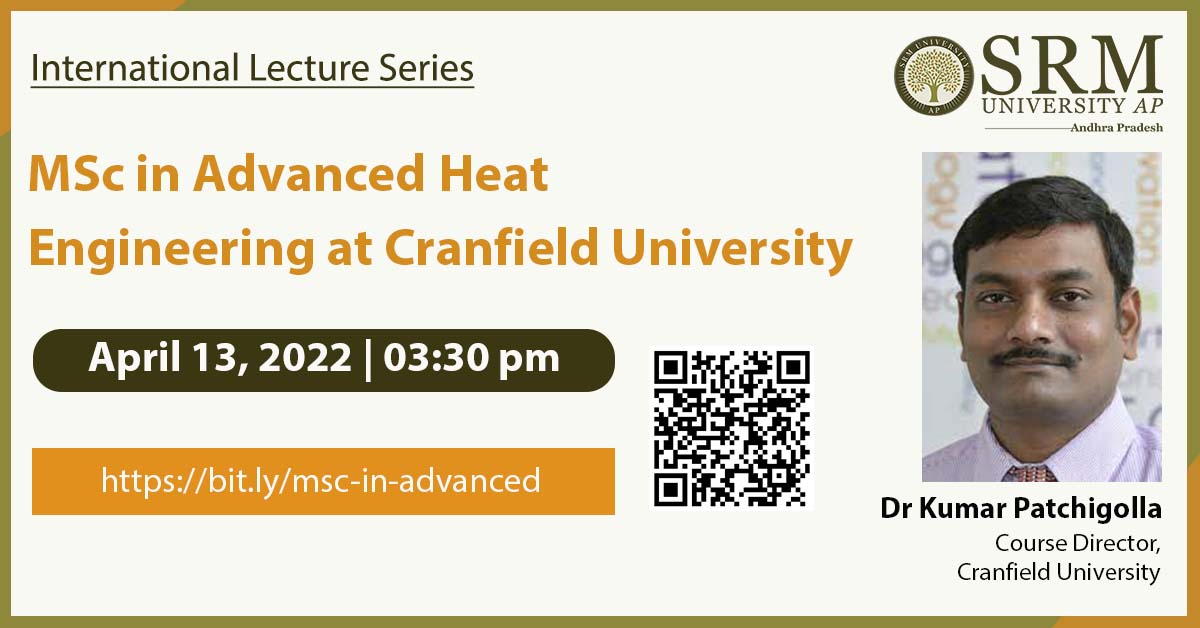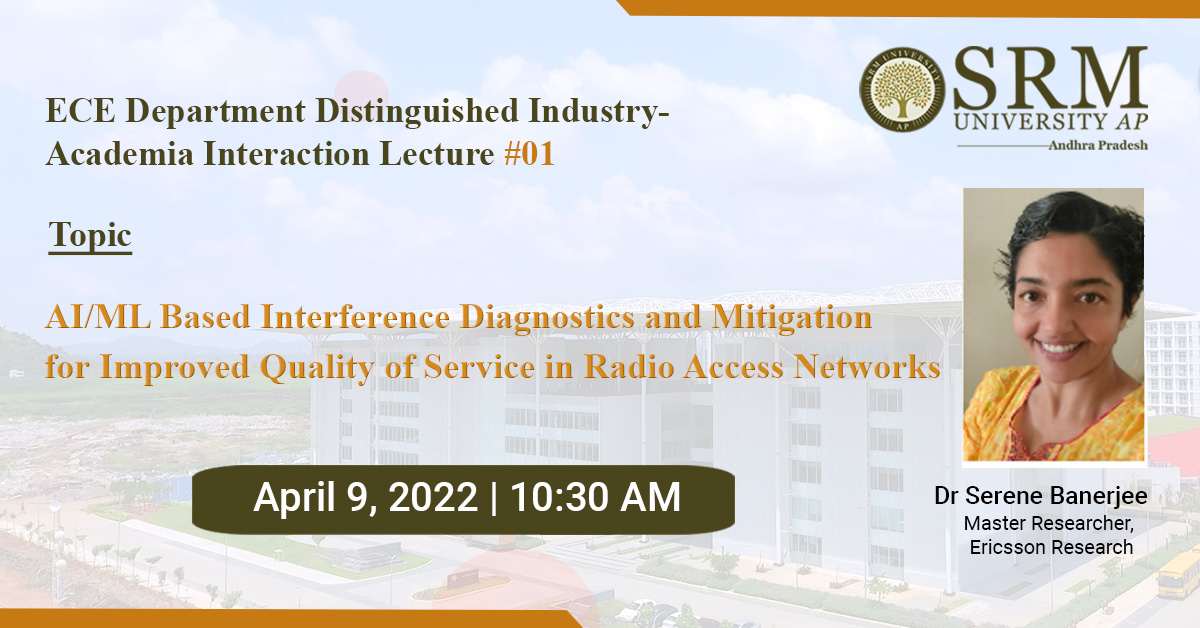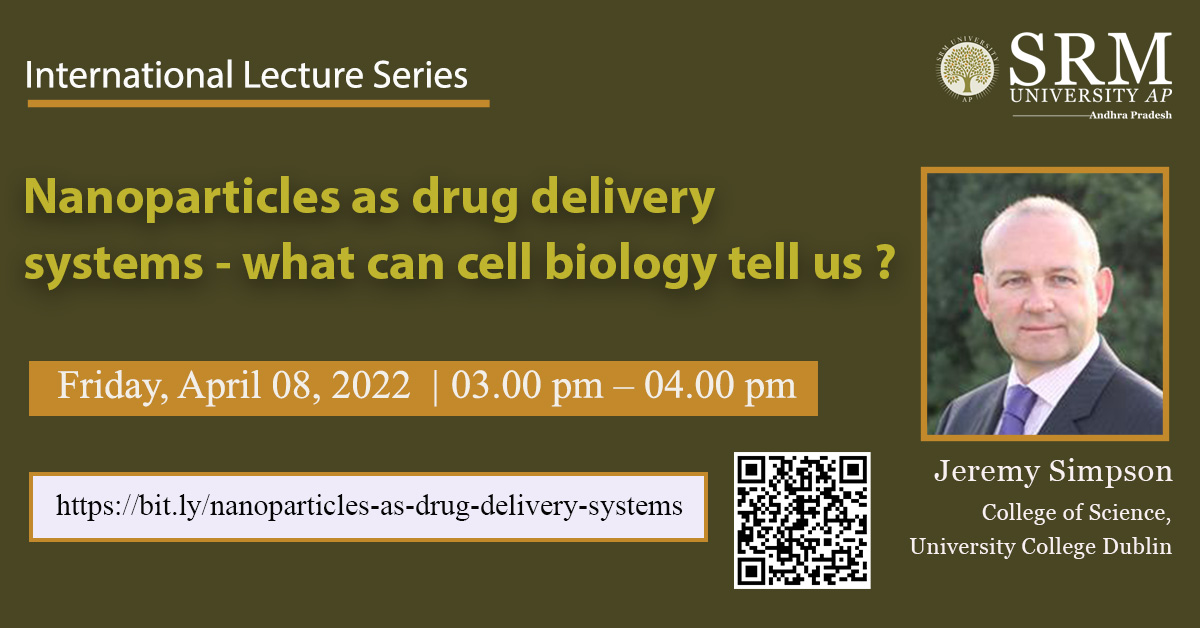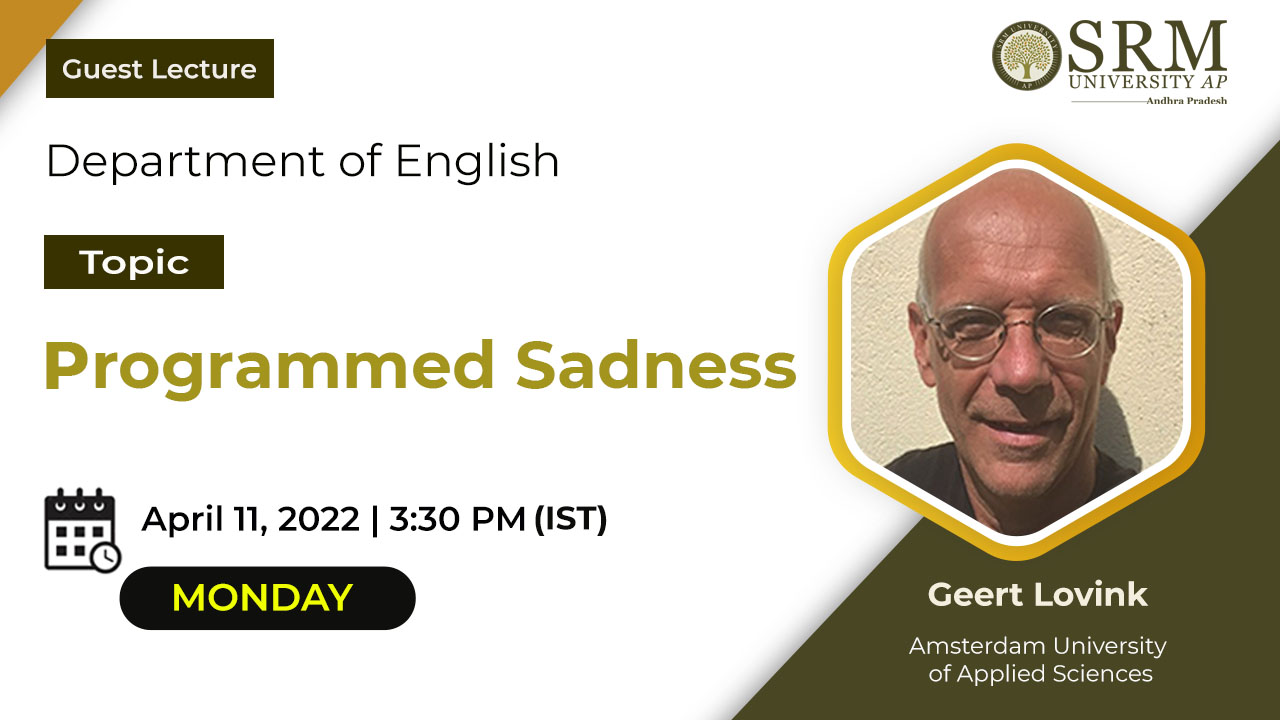All Management News
- E-Cell organised induction programme on entrepreneurial leadership April 12, 2022
The Department of Entrepreneurship and Innovation organised an induction programme, “Ushering the Next Era- Innovation, Leadership & Entrepreneurship”, to give the students a comprehensive overview of the emerging possibilities in entrepreneurship. Various students who have successfully initiated their own start-up ideas have also shared their experiences.
Udayan Bakshi, Associate Director- Entrepreneurship, introduced the students to the country’s business landscape and rendered them a brief picture of the start-up ecosystem of India. Substantiating his arguments using facts and figures, he instigated the students to develop an innovative spirit and don the role of entrepreneurs capable of transforming the face of the nation.
Prof B V Babu, Dean- School of Engineering and Sciences, presided over and spoke about the legacy of the university. He also reminded the students of the ample avenues left open for students to explore and experience. “We aspire to offer a wholesome learning experience to our students through a gamut of courses ranging from engineering to fine arts and management”, he said. When it comes to entrepreneurship, there are pioneering ventures like Hatchlab Research Centre and Next Tech Lab to support and motivate young researchers who can promote the commercial research culture.
Prof Prakash Jadhav, Head- Innovation, Design and Entrepreneurship Academy (IDEA), enlightened students on the inevitability of trying their hands at entrepreneurship as the country demands more job providers than job seekers to satiate the needs of the growing population. He also coaxed the students to contribute to the Make in India vision by exhibiting their innovatory leadership skills.
A few of our students, Lucklin Medimpudi, Jathin, Divi Gnanesh, Lakshman Tatikonda, Manaswini Surusomayajula, and Himansh Mudigonda, who have displayed their entrepreneurial acumen through ingenious start-up ideas went on to share their experiences and encouraged the students to become part of the E-Cell.
The session was later taken over by Manideep Surusomayajula who elaborated on various initiatives such as the student communities, exploratory competition, and the experiential learning platforms, the E-Cell has embarked on to train our students to perform to the best of their abilities in the industry. There are numerous platforms ranging from international collaborations to global mentorship programmes and women-led start-up initiatives for students to innovate themselves as individuals and as a team.
Mr Bakshi wrapped up the event by referring to the triumphant stories the SRM AP E-cell has witnessed. He reinstated the university’s vision to build strong professionals who can assume the position of entrepreneurial leaders and play a crucial role in nation-building. SRM AP aims to give rise to dozens of skilful professionals having the ability to motivate and inspire sweeping changes that can help the nation progress.
Continue reading → - Lateral load capacity of common building types in India April 11, 2022
The Department of Civil Engineering is organising the first physical lecture as part of the Departmental Distinguished Lecture Series on April 12, 2022 from 11.00 pm to 12.30 pm. Prof Hemant B Kaushik from the Department of Civil Engineering, IIT Guwahati is the distinguished speaker of the event. He will deliver a talk on the topic “Lateral load capacity of common building types in India”. This talk will provide detailed insights into the seismic behaviour of different building types in India. Various experimental results of full-scale model tests on shake tables and actuators will also be presented.
Speaker’s Profile
Prof Hemant B Kaushik is currently working at IIT Guwahati in the Department of Civil Engineering and Centre for Disaster Management and Research. He is also the Associate Dean of Academic Affairs and the Head of the Centre for Educational Technology. His research areas broadly include: earthquake resistant design of structures, nonlinear behavior of structures, retrofitting of structures, seismic vulnerability assessment of structures, earthquake damage surveys etc. He was the recipient of the INAE Young Scientist Award in 2010 and 2013. He also received the David Fischetti Award in 2019, presented by the Preservation Engineering Technical Committee (PETC) of the Association for Preservation Technology International (APT), USA. The award recognises an outstanding article in a peer-reviewed publication that advances the field of conservation engineering. Prof Kaushik is also a member of the Earthquake Engineering Sectional Committee, CED 39, Bureau of Indian Standards. He also holds membership in several professional bodies like Earthquake Engineering Research Institute (EERI), USA, American Society of Civil Engineers (ASCE), USA, The Masonry Society (TMS), USA, Indian Society of Earthquake Technology (ISET), India and Institution of Engineers, India. He has contributed several post-earthquake reconnaissance study reports and papers in reputed journals and conferences.
All are invited to join this informative lecture on Tuesday, April 12, 2022, from 11.00 pm to 12:30 pm.
- Introducing perovskite-based catalyst for microbial fuel cell April 8, 2022
Microbial fuel cells (MFCs) are biochemical systems producing green energy through the microbial degradation of organic contaminants in wastewater. The Oxygen Reduction Reaction (ORR) that takes place at MFC cathode decides the overall output of energy generation. Hence, the selection of ORR catalyst becomes pivotal in MFC fabrication for its efficiency and cost effectiveness. Gopa Nandikes P, PhD Scholar, Department of Environmental Science, proposes perovskite-based nanocatalyst as an excellent replacement to Platinum in his paper “Perovskite-Based Nanocomposite Electrocatalysts: An alternative to Platinum ORR Catalyst in Microbial Fuel Cell Cathodes”. The paper is published in ‘Energies Journal’ having an Impact Factor of 3.04.
The paper comprehensively summarises all the studies conducted with perovskite-based ORR catalyst in MFC, its unique reaction mechanism and the synergistic effect with carbon. The paper also throws light into various challenges and prospects to further improve the ORR activity of perovskite-based catalysts.
Abstract of the Research
Microbial fuel cells (MFCs) are biochemical systems having the benefit of producing green energy through the microbial degradation of organic contaminants in wastewater. The efficiency of MFCs largely depends on the cathode oxygen reduction reaction (ORR). A preferable ORR catalyst must have good oxygen reduction kinetics, high conductivity, and durability, together with cost-effectiveness. Platinum-based electrodes are considered a state-of-the-art ORR catalyst. However, the scarcity and higher cost of Pt are the main challenges for the commercialization of MFCs; therefore, in search of an alternative, cost- effective catalysts, those such as doped carbons and transition-metal based electrocatalysts have been researched for more than a decade. Recently, perovskite-oxide based nanocomposites have emerged as a potential ORR catalyst due to their versatile elemental composition, molecular mechanism, and the scope of nanoengineering for further developments. In this article, we discuss various studies conducted and opportunities associated with perovskite-based catalysts for ORR in MFCs. Special focus is given to a basic understanding of the ORR reaction mechanism through oxygen vacancy, modification of its microstructure by introducing alkaline earth metals, electron transfer pathways and the synergistic effect of perovskite and carbon. At the end, we also propose various challenges and prospects to further improve the ORR activity of perovskite-based catalysts.
- J Abbas Mohammed grabbed a staggering offer of CTC 44.91 LPA April 8, 2022
J Abbas Mohammad was in a state of absolute euphoria as the news reached him. He has been placed with Predli, a top-performing AI company, with a staggering offer of CTC 44.91 LPA. With one more achievement to flaunt, SRM is surging ahead with an endless list of placement offers and achievement stories. Abbas is a final year student of the Department of Computer Science Engineering who has already demonstrated his calibre by grabbing a seat at UC Berkeley through the Semester Abroad Programme. His sheer will and dedication have always helped him break the records and fly to further heights.
SRM University-AP happened to be the perfect place that shaped him up to pursue the career of his dreams. Our collaboration with leading enterprises in the world turned out to be an excellent avenue for many to walk ahead to a horizon of opportunities. The Department of Corporate Relations & Careers Services is also doing an amazing job in training the students and encouraging them to apply for the best available prospects. Let us listen to Abbas as he pours out his excitement.
“I am truly delighted to have received this high-paying placement offer. And all of this became possible with the exposure I received from my university. I kept abreast of the latest technologies in the software industry and applied them through practical projects as part of our co-curricular activities in classrooms and university labs such as the Next Tech Lab. The experienced faculty and specially curated curriculum we follow here will always give an extra edge to the students. I am indeed thankful to Dr Sujith Kalluri and Dr Priyanka for assisting me on several occasions”, he said.
“It is the Semester Abroad Program at UC Berkeley, which allowed me to build a strong international networks, that eventually led to this offer. I’m immensely fortunate to land the job of my dream. In future, I hope to advance professionally and adapt to greater leadership roles with the goal of starting my own venture”, remarked Abbas.
Continue reading → - Ushering the next era- innovation, leadership & entrepreneurship April 7, 2022
Once upon a time “Kodak” (Kodak Croma was the leader in camera manufacturing) said – “I am the leader!!! No digitalization can impact me. I am too big and powerful for anyone and anything to be replaced!!!!…. I am invincible!”. Today “Kodak Croma” has become a fossil. The new generation is not even aware of the name.
Every innovation is the beginning of a new era. It also ushers a million changes that will have a radical impact on all aspects of life. Therefore, it is inevitable to keep abreast of all the latest happenings in the changing times as every new change opens a new world of opportunities. Unless the present generation is equipped to embrace the heralding revolution, they are locked out of infinite avenues that will lead them to a brand-new life.
The Department of Entrepreneurship and Innovation is organising an induction programme ‘Ushering the Next Era- Innovation, Leadership & Entrepreneurship’ for the students of SRM University- AP on various initiatives and activities on leadership and entrepreneurship. The programme intends to give a brief overview of the contemporary innovations in the business landscape and facilitate them to transform in tune with the recent developments. They are also given an opportunity to meet some of the budding entrepreneurs in the field to derive inspiration and orient themselves accordingly. Grab every opportunity that comes your way and transform yourselves into the leaders of tomorrow.
Date: April 8, 2022
Time: 5.00 pm IST
Venue: APJ Abdul Kalam Auditorium, X-Lab, SRMAP
You can also join us virtually for this exciting session to explore the pioneering developments in the field.
Continue reading → - MSc in Advanced Heat Engineering at Cranfield University April 7, 2022
The heat and power industry is undergoing a major transformation, and multinational enterprises must adapt to satisfy ever-increasing present and future demands. The Office of International Relations and Higher Studies at SRM University-AP is organising a lecture titled “MSc in Advanced Heat Engineering at Cranfield University” to educate the students about the importance, scope and opportunities of the field. Dr Kumar Patchigolla, Course Director at Cranfield University will illuminate the participants on the topic on April 13, 2022, at 03.30 pm.
All are invited to participate in the lecture organised as a part of the International Lecture Series.
About the Speaker
Dr Patchigolla joined Cranfield University in 2009 as Lecturer in 2012, Senior Lecturer in 2017 and Reader in 2020. During this period he is involved in the demonstration of low-temperature heat storage (rock bed), thermal driven absorption chiller (Li-Br), combustion (fluidized, pulverized), gasification (fixed, fluidized), the capture of CO2 (Chemical/Calcium looping) and CO2 pipeline and shipping transport facilities, evaluating the effects on component durability and gas cleaning requirements of systems using a wide range of solid fuels. These include biomasses, waste and sewage sludge as well as coal either alone or in different co-fired combinations and supervision of research activities using the Pilot Scale Advanced Capture (PACT) facilities.
Continue reading → - AI/ML algorithms for radio access networks April 7, 2022
The Department of Electronics and Communication Engineering is hosting the first instalment of the Distinguished Industry-Academia Interaction Lecture in the ECE DDIAL series. The event is scheduled on April 9, 2022, at 10.30 am. Dr. Serene Banerjee, Master Researcher, Ericsson Research, will be the keynote speaker. She will deliver a talk on the topic ‘AI/ML Based Interference Diagnostics and Mitigation for Improved Quality of Service in Radio Access Networks’.
Abstract of the Talk
For coverage and capacity optimization, Uplink Power Control is one of the key steps, in addition to antenna tilting and Downlink Power Control. For self-organizing networks, automated algorithms for Uplink Power Control are a necessity. However, Uplink Power Control affects the noise in the neighbouring cells. It is important to detect this interference to monitor uplink noise. Uplink noise due to power control manifests as static interference in the channel. The current state-of-the-art baseline model is based on regression models. We have proposed automated detection of static interference in the uplink channel of cells based on machine learning models. We have evaluated the same on customer data on LTE networks with high accuracy. The detected cells are subsequently used to correct the nominal power parameter through a proposed teacher-student model based on the primary cell and its neighbours. This approach shows better performance than the state-of-the-art baseline methods. The dual of static is dynamic interferences and can be attributed to traffic load, Passive Intermodulation (PIM) and thermal noise, etc. PIM identification is a major component in troubleshooting modern wireless communication systems. The introduction of carrier aggregation has increased PIM occurrences. Current state-of-the-art approaches include manual rule-based and hardware-based debugging. These approaches can detect the occurrence of PIM, long after the event occurrence and result in incurring incidental costs. We propose an ensemble of time series-based machine learning and signal processing approaches that can automatically identify PIM in real-time by analyzing Key Performance Indicators (KPI) of the primary cell and its nearest neighbours. We validate our results for various environmental conditions in data available from LTE and 5G consumer networks. We have further extended the work to multi-frequency time series to handle finer time granularities and detect PIM anomalies in an online learning setting. We further propose a self-supervised reinforcement learning approach to predict PIM related anomalies before it happens. We forecast environmental conditions that give rise to PIM based on offline historical data and model to predict future occurrences. Experimental results are on real-world datasets comprising 50,000+ cells which have shown to accurately predict PIM 60% of the time. To the best of our knowledge, this is the first work, where we are able to predict PIM anomalies before they happen. Post PIM-identification, we propose a binary search-based solution that is amenable to real-time implementation. We show through simulations that this search in tandem with a reinforcement learning-based solution can dynamically mitigate and cancel PIM. Results show that the number of steps to converge, to identify and mitigate the PIM in uplink frequency is reduced by a large factor. To summarize, our contributions include using machine learning algorithms for: (1) robust interference classification, (2) demonstrating p0-nominal recommender as teacher-student model, (3) a times-series analysis-based PIM identification, (4) extending the approach to multi-frequency time series, and for online learning, (5) demonstrating a self-supervised reinforcement learning approach to predict PIM anomalies before they happen, and (6) mitigating PIM, in spite of environmental unknowns, by employing binary search in conjunction with ML/RL-based approaches.
About the Speaker
Serene Banerjee, Master Researcher, Ericsson Research, has 17+ years of industrial experience after completing her PhD from the University of Texas at Austin, under Prof Brian L Evans in 2004. She has completed BTech(H) in Electronics and Electrical Communications Engineering from IIT Kharagpur in 1999. At Ericsson, she is focusing on developing AI/ML algorithms for Radio Access Networks. Prior to Ericsson, she has worked with Texas Instruments, HP, and Johnson Controls. She has 23 peer-reviewed publications, 9 granted patents, and several pending.
Join the webinar for an informative interaction with Dr Serene Banerjee.
Continue reading → - Nanoparticles as drug delivery systems – what can cell biology tell us? April 7, 2022
Guest lectures are a great opportunity for students to learn what the rest of the world thinks/researches. As a part of the International Lecture Series, The Office of International Relations and Higher Studies invites Prof Jeremy Simpson from University College, Dublin to engage the students on the topic “Nanoparticles as drug delivery systems – what can cell biology tell us?”
Nanotechnology advancements have resulted in the creation of related fields such as nanoparticle synthesis and biomedical applications. Patients and doctors alike have been given hope by nanotechnology-driven advancements in treating complicated medical problems.
Join this informative lecture on April 08, 2022, at 3.00 pm and get enlightened!
About the Speaker
Jeremy Simpson carried out his PhD work at the University of Warwick (UK), working on the trafficking of protein toxins in mammalian cells under the supervision of Profs. Mike Lord and Lynne Roberts. After post-doctoral work at the Scripps Research Institute in San Diego (USA) in the lab of Dr Bill Balch and the ICRF in London (UK) in the lab of Dr Rainer Pepperkok, he was awarded a long term EMBO fellowship allowing him to move to the European Molecular Biology Laboratory (EMBL) in Heidelberg (Germany). For over 9 years he worked at EMBL developing and applying novel high-throughput imaging approaches to study protein localisation and membrane traffic. In 2008 he was appointed as Full Professor of Cell Biology at University College Dublin, Ireland. His lab currently applies high-throughput imaging technologies to study various membrane trafficking pathways in the cell, a number of human diseases associated with defects in the endomembrane system, and the molecular basis of how synthetic nanoparticles enter cells and induce toxicity. His lab also has expertise in the growth and analysis of 3D cell models, including spheroids and organoids, and their imaging and analysis using high-content screening microscopy. His lab also develops novel software tools and approaches for image analysis. He has authored 120 peer-reviewed articles, including articles in Nature Cell Biology and Nature Methods, and a number of book chapters. He is a Fellow of the UCD Conway Institute and runs the UCD Cell Screening Laboratory (www.ucd.ie/hcs). Additional academic roles within UCD have included Head of Subject for the Cell and Molecular Biology Programme, Head of the School of Biology and Environmental Science, and Vice-Principal (International) of the UCD College of Science. In September 2021 he took up the role of College Principal and Dean of Science for the UCD College of Science.
Continue reading → - CSE students grab the coveted MITACS Globalink Research Internship April 4, 2022
“When you want something, all the universe conspires in helping you to achieve it”– Paulo Coelho.
Be it a dream or a wish, when you are determined to pursue what the mind really wants, SRM University-AP helps you reach that goal. Ms Pragya Gupta and Ms Swikriti Khadke joined SRM AP with vibrant dreams, and in their third year, they have attained the prestigious Mitacs Globalink Research Internship. The students from the Department of Computer Science and Engineering will spend three months in Canadian universities as a part of this fully-funded research internship. Ms Swikriti will intern at Université du Québec en Outaouais – Gatineau on the research project titled “Systematic PV farm power losses calculation and modelling using computational intelligence techniques”. Ms Pragya will be going to Athabasca University – Edmonton as a research intern to work on the project titled “Blockchains for Data Storage and Mining in Learning Analytics”.
About Mitacs Globalink Research Internship
Mitacs Globalink Research Internship is a highly competitive programme that pairs top-ranked international students having specific research expertise from 15 countries worldwide with faculty at top Canadian academic institutions. This is a twelve (12) week research project of mutual interest between May and October 2022. The Canadian host faculty project leader makes selections by verifying the student’s background and skills in the research area and the unique contribution they will be made to the research during the stay. As a fully-funded programme, Mitacs and AICTE will administer the grant. Students can choose from about 14k+ projects in disciplines like Engineering, Life Sciences, Mathematics, Natural Sciences, Social Sciences, and the Humanities.
Mitacs will be responsible for providing the following to the students:
1. An airfare stipend of Can$1,500;
2. A stipend of Can$175 to contribute to the cost of transportation from the Canadian airport to accommodation unless otherwise arranged by your host institution
3. A stipend of Can$200 per week for living expenses
4. Ensure that students receive Canadian medical insurance.
5. A daily allowance of Can$45 for housing for the duration of the research internship.
6. A stipend of Can$300 for any student fees charged by the Canadian host institution
7. Reimbursement of immigration permit application fees (as required to participate in the research internship — up to a maximum of Can$240)
8. A stipend of Can$500 for any COVID-19-related expenses (e.g., COVID test, quarantine, expenses incurred during isolation, etc.)The journey, in Pragya and Swikriti’s words:
The journey from applying for MITACS to getting selected as one of the GRI interns in one of the top-ranked universities in Canada was no less than a dream come true. The registration process included filling out an application form which was the most important step and a complicated one. This was also an elimination stage for many because writing down all our details in a limited number of words was quite difficult and challenging. After submitting the application form, the details about the Matching round were intimated in November. We received emails for the interview round from the professor himself. It was a technical interview that comprised of questions regarding our work experience, knowledge about the technology we will be contributing to the project during the internship, and personal details. The interview lasted for 30-45 mins, after which the professor assigned us some tasks to assess our knowledge regarding the topic. After completing and submitting the task, around Mid December, we received a congratulatory mail regarding our selection for MITACS GRI 2022, which will commence from May 2022 and continue for the next three months.
The Globalink Graduate Fellowship offers former Globalink research interns:
■ Direct financial support from Mitacs
■ Recognition as Globalink alumni
■ The opportunity to work with Canada’s research supervisors during your graduate studies
■ Additional exposure to the Canadian research and innovation landscape and increased Canadian experience.A note of gratitude
“We would like to thank SRM University-AP, Andhra Pradesh, for helping us build our skills and supporting us throughout the process. Our university management has always been kind and helpful to its students to explore new opportunities and create new relations. We would like to extend our gratitude to our mentors, Dr Goutam Kumar Dalapati and Dr Anil K Suresh, for their continuous support, guidance, and motivation. Last but not least, our parents have been our support system throughout our journey”.
Continue reading → - Programmed sadness in the desire for connections and recognition April 1, 2022
“Social media reality may be seen as a magical realm where we belong. That’s where the tribes gather, and that’s the place to be – on top of the world. Social relations in “real life” have lost their importance”– David Brooks
Technological sadness has become the default mental state of the online billions. The Department of English at SRM University-AP organises a guest lecture titled “Programmed Sadness” on April 11, 2022, to discuss the emotional analytics of network cultures. Prof Geert Lovink, Amsterdam University of Applied Sciences, will engage the participants at 3.30 pm on that day.
What happens when nothing can motivate you anymore, when all the self-optimisation techniques fail, and you begin to carefully avoid these forms of emotional analytics? Compared to others, your ranking is low – and this makes you sad. In this presentation, Dutch media theorist, internet critic and founder of the Institute of Network Cultures will discuss the dark side of the net. The mental state of internet users is tragic. Instead of empowerment and self-organisation, what we mostly see around is anger and despair. How did we end up like this? The lecture will zoom in on the widespread techno-sadness that is produced by dominant social media platforms through ‘behavioural modification’ (also known as ‘nudging’) with the aim to keep users coming back to the app, exposing them to even more personalised ads. Instead of empowerment and diversity, we witness a ‘chilling effect’ of hyper conformism, resulting in anger, sadness, depression and loneliness. This is the social reality today.
About the speaker
Geert Lovink is a Dutch media theorist, internet critic and author of Uncanny Networks (2002), Dark Fiber (2002), My First Recession (2003), Zero Comments (2007), Networks Without a Cause (2012), Social Media Abyss (2016), Organization after Social Media (with Ned Rossiter, 2018), Sad by Design (2019) and Stuck on the Platform (2022). He studied political science at the University of Amsterdam (UvA) and received his PhD from the University of Melbourne. In 2004, he founded the Institute of Network Cultures (www.networkcultures.org) at the Amsterdam University of Applied Sciences (HvA). His centre organises conferences, publications and research networks such as Video Vortex (online video), The Future of Art Criticism, and MoneyLab (internet-based revenue models in the arts). Recent projects deal with digital publishing experiments, critical meme research, participatory hybrid events and precarity in the arts. From 2007-to 2018, he was a Media Theory professor at the European Graduate School. In December 2021, he was appointed Professor of Art and Network Cultures at the UvA Art History Department.
All students and faculty members are invited to join this illuminating session on April 11, 2022, at 03.30 pm via the zoom platform.
Continue reading →



